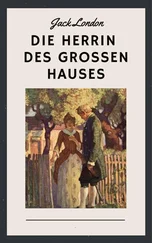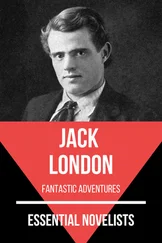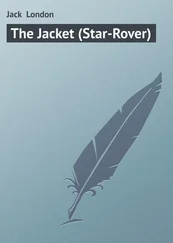Jack London - John Barleycorn
Здесь есть возможность читать онлайн «Jack London - John Barleycorn» весь текст электронной книги совершенно бесплатно (целиком полную версию без сокращений). В некоторых случаях можно слушать аудио, скачать через торрент в формате fb2 и присутствует краткое содержание. Жанр: Классическая проза, на английском языке. Описание произведения, (предисловие) а так же отзывы посетителей доступны на портале библиотеки ЛибКат.
- Название:John Barleycorn
- Автор:
- Жанр:
- Год:неизвестен
- ISBN:нет данных
- Рейтинг книги:3 / 5. Голосов: 1
-
Избранное:Добавить в избранное
- Отзывы:
-
Ваша оценка:
- 60
- 1
- 2
- 3
- 4
- 5
John Barleycorn: краткое содержание, описание и аннотация
Предлагаем к чтению аннотацию, описание, краткое содержание или предисловие (зависит от того, что написал сам автор книги «John Barleycorn»). Если вы не нашли необходимую информацию о книге — напишите в комментариях, мы постараемся отыскать её.
John Barleycorn — читать онлайн бесплатно полную книгу (весь текст) целиком
Ниже представлен текст книги, разбитый по страницам. Система сохранения места последней прочитанной страницы, позволяет с удобством читать онлайн бесплатно книгу «John Barleycorn», без необходимости каждый раз заново искать на чём Вы остановились. Поставьте закладку, и сможете в любой момент перейти на страницу, на которой закончили чтение.
Интервал:
Закладка:
The call was imperative. There was no uncertainty about it. More than anything else in the world, my frayed and frazzled mind wanted surcease from weariness in the way it knew surcease would come. And right here is the point. For the first time in my life I consciously, deliberately, desired to get drunk. It was a new, a totally different manifestation of John Barleycorn's power. It was not a body need for alcohol. It was a mental desire. My over-worked and jaded mind wanted to forget.
And here the point is drawn to its sharpest. Granted my prodigious brain-fag, nevertheless, had I never drunk in the past, the thought would never have entered my mind to get drunk now. Beginning with physical intolerance for alcohol, for years drinking only for the sake of comradeship and because alcohol was everywhere on the adventure-path, I had now reached the stage where my brain cried out, not merely for a drink, but for a drunk. And had I not been so long used to alcohol, my brain would not have so cried out. I should have sailed on past Bull Head, and in the smoking white of Suisun Bay , and in the wine of wind that filled my sail and poured through me, I should have forgotten my weary brain and rested and refreshed it.
So I sailed in to shore, made all fast, and hurried up among the arks. Charley Le Grant fell on my neck. His wife, Lizzie, folded me to her capacious breast. Billy Murphy, and Joe Lloyd, and all the survivors of the old guard, got around me and their arms around me. Charley seized the can and started for Jorgensen's saloon across the railroad tracks. That meant beer. I wanted whisky, so I called after him to bring a flask.
Many times that flask journeyed across the railroad tracks and back. More old friends of the old free and easy times dropped in, fishermen, Greeks, and Russians, and French. They took turns in treating, and treated all around in turn again. They came and went, but I stayed on and drank with all. I guzzled. I swilled. I ran the liquor down and joyed as the maggots mounted in my brain.
And Clam came in, Nelson's partner before me, handsome as ever, but more reckless, half insane, burning himself out with whisky. He had just had a quarrel with his partner on the sloop Gazelle, and knives had been drawn, and blows struck, and he was bent on maddening the fever of the memory with more whisky. And while we downed it, we remembered Nelson and that he had stretched out his great shoulders for the last long sleep in this very town of Benicia ; and we wept over the memory of him, and remembered only the good things of him, and sent out the flask to be filled and drank again.
They wanted me to stay over, but through the open door I could see the brave wind on the water, and my ears were filled with the roar of it. And while I forgot that I had plunged into the books nineteen hours a day for three solid months, Charley Le Grant shifted my outfit into a big Columbia River salmon boat. He added charcoal and a fisherman's brazier, a coffee pot and frying pan, and the coffee and the meat, and a black bass fresh from the water that day.
They had to help me down the rickety wharf and into the salmon boat. Likewise they stretched my boom and sprit until the sail set like a board. Some feared to set the sprit; but I insisted, and Charley had no doubts. He knew me of old, and knew that I could sail as long as I could see. They cast off my painter. I put the tiller up, filled away before it, and with dizzy eyes checked and steadied the boat on her course and waved farewell.
The tide had turned, and the fierce ebb, running in the teeth of a fiercer wind, kicked up a stiff, upstanding sea. Suisun Bay was white with wrath and sea-lump. But a salmon boat can sail, and I knew how to sail a salmon boat. So I drove her into it, and through it, and across, and maundered aloud and chanted my disdain for all the books and schools. Cresting seas filled me a foot or so with water, but I laughed at it sloshing about my feet, and chanted my disdain for the wind and the water. I hailed myself a master of life, riding on the back of the unleashed elements, and John Barleycorn rode with me. Amid dissertations on mathematics and philosophy and spoutings and quotations, I sang all the old songs learned in the days when I went from the cannery to the oyster boats to be a piratesuch songs as: "Black Lulu," "Flying Cloud," "Treat my Daughter Kind-i-ly," "The Boston Burglar," "Come all you Rambling, Gambling Men," "I Wisht I was a Little Bird," "Shenandoah," and "Ranzo, Boys, Ranzo."
Hours afterward, in the fires of sunset, where the Sacramento and the San Joaquin tumble their muddy floods together, I took the New York Cut-Off, skimmed across the smooth land-locked water past Black Diamond, on into the San Joaquin, and on to Antioch, where, somewhat sobered and magnificently hungry, I laid alongside a big potato sloop that had a familiar rig. Here were old friends aboard, who fried my black bass in olive oil. Then, too, there was a meaty fisherman's stew, delicious with garlic, and crusty Italian bread without butter, and all washed down with pint mugs of thick and heady claret.
My salmon boat was a-soak, but in the snug cabin of the sloop dry blankets and a dry bunk were mine; and we lay and smoked and yarned of old days, while overhead the wind screamed through the rigging and taut halyards drummed against the mast.
CHAPTER XXIII
My cruise in the salmon boat lasted a week, and I returned ready to enter the university. During the week's cruise I did not drink again. To accomplish this I was compelled to avoid looking up old friends, for as ever the adventure-path was beset with John Barleycorn. I had wanted the drink that first day, and in the days that followed I did not want it. My tired brain had recuperated. I had no moral scruples in the matter. I was not ashamed nor sorry because of that first day's orgy at Benicia , and I thought no more about it, returning gladly to my books and studies.
Long years were to pass ere I looked back upon that day and realised its significance. At the time, and for a long time afterward, I was to think of it only as a frolic. But still later, in the slough of brain-fag and intellectual weariness, I was to remember and know the craving for the anodyne that resides in alcohol.
In the meantime, after this one relapse at Benicia , I went on with my abstemiousness, primarily because I didn't want to drink. And next, I was abstemious because my way led among books and students where no drinking was. Had I been out on the adventure-path, I should as a matter of course have been drinking. For that is the pity of the adventure-path, which is one of John Barleycorn's favourite stamping grounds.
I completed the first half of my freshman year, and in January of 1897 took up my courses for the second half. But the pressure from lack of money, plus a conviction that the university was not giving me all that I wanted in the time I could spare for it, forced me to leave. I was not very disappointed. For two years I had studied, and in those two years, what was far more valuable, I had done a prodigious amount of reading. Then, too, my grammar had improved. It is true, I had not yet learned that I must say "It is I"; but I no longer was guilty of a double negative in writing, though still prone to that error in excited speech.
I decided immediately to embark on my career. I had four preferences: first, music; second, poetry; third, the writing of philosophic, economic, and political essays; and, fourth, and last, and least, fiction writing. I resolutely cut out music as impossible, settled down in my bedroom, and tackled my second, third, and fourth choices simultaneously. Heavens, how I wrote! Never was there a creative fever such as mine from which the patient escaped fatal results. The way I worked was enough to soften my brain and send me to a mad-house. I wrote, I wrote everythingponderous essays, scientific and sociological short stories, humorous verse, verse of all sorts from triolets and sonnets to blank verse tragedy and elephantine epics in Spenserian stanzas. On occasion I composed steadily, day after day, for fifteen hours a day. At times I forgot to eat, or refused to tear myself away from my passionate outpouring in order to eat.
Читать дальшеИнтервал:
Закладка:
Похожие книги на «John Barleycorn»
Представляем Вашему вниманию похожие книги на «John Barleycorn» списком для выбора. Мы отобрали схожую по названию и смыслу литературу в надежде предоставить читателям больше вариантов отыскать новые, интересные, ещё непрочитанные произведения.
Обсуждение, отзывы о книге «John Barleycorn» и просто собственные мнения читателей. Оставьте ваши комментарии, напишите, что Вы думаете о произведении, его смысле или главных героях. Укажите что конкретно понравилось, а что нет, и почему Вы так считаете.











